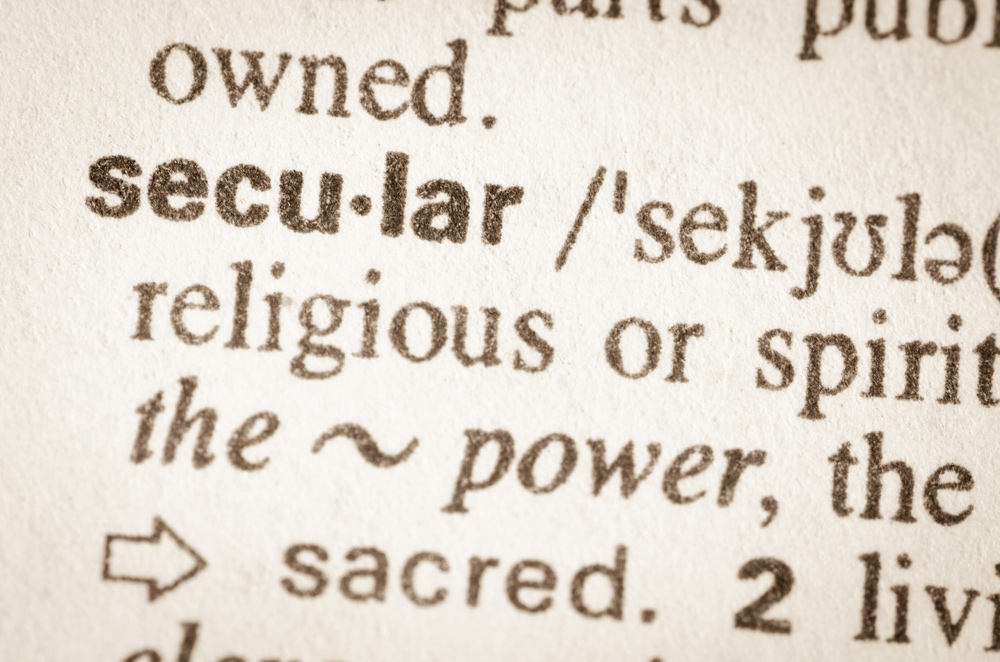Many, if not most, evangelicals hear the term “secularism” and perceive a clear and present danger, an impending doom — a rising tide of deliberately anti-Christian sentiment. Thoughts of the antichrist or the beast of Revelation come to mind. In this way, Christianity and secularism appear as combating foes striving for the soul of a culture.
However, perhaps no one has offered a better interpretation of secularism than philosopher Charles Taylor, whose copious volume, “A Secular Age,” offers another angle. He considers how our society, in which it was once nearly unthinkable not to believe in God, moved to a place in which belief is merely one option among many. In a smaller book, “How (Not) to Be Secular,” James K.A. Smith provides an accessible digest of Taylor’s work, noting three key dynamics for understanding secularism.
First, secularism is an arena of contested belief. No single belief system can claim exclusive influential status. Religious belief is no longer a cultural assumption, and many beliefs seem plausible. Each person is free to choose his or her own convictions but should not expect these convictions to be accepted norms.
Second, secularism is the experience of “cross-pressure.” The contestability of belief occurs not only in the public arena, but also in the inner being — the self. Those who believe in God feel tempted not to believe, and those who do not believe feel tempted to believe. To explain, Smith quotes the opening line of Julian Barnes’s reflective book, “Nothing to Be Frightened Of,” saying, “I don’t believe in God, but I miss him.” Secularism isn’t so much a contest of polar foes but a social condition of uncertainty.
Third, secularism is life lived in the “immanent frame.” Now that it’s possible to imagine not believing in God, people find their sense of significance and meaning completely within the natural order and without reference to eternity or transcendence. In other words, the meaning of life is found “down here,” not “up there.”
Is Secularism a Threat or Opportunity?
Christian thinkers still seem unsettled on how we should view the secular shift. Some see a distinct threat — the loss of shared cultural assumptions that once aligned with our values. A generation ago, we grieved the loss of official prayer in schools, abortion and the divorce culture. Now we seem stunned at the loss of any sexual ethic whatsoever, the legalization of gay marriage, and the like. Others, however, note that the early church thrived in the context of contestable belief and that the 21st century more and more resembles the cultural realities of the first century. In his book, “Onward,” Russell Moore notes the church’s movement from a perceived position as “moral majority” to the current reality of “prophetic minority,” which indeed seems congruent to the witness of the early believers.
My own years as a local church pastor illustrate the shift, with its advantages and disadvantages. My first church was in very rural Kentucky. The cows outnumbered the humans, but Christianity formed the core values of the community. In a sense, ministry was easier in this context because people felt a culturally ingrained need to believe in Jesus and go to church. Nonetheless, I often feared that, by assuming Christianity, we actually blurred or minimized the gospel’s clear demands. Conversion, baptism and church membership weren’t insignificant, but they were normal, such that they didn’t feel as radical as they should. The church was imbedded in the culture. The advantage was influence. The disadvantage was normalcy.
My second church was in very urban Louisville, in the arts district. There, coffee shops and galleries outnumbered the churches, and Christianity felt like a faint echo from the past. In a sense, ministry was harder in this context because there was no culturally ingrained need to believe. Nonetheless, because no one assumed Christianity, the gospel’s demands stood out clearly. Conversion, baptism and membership were significant de facto. Merely entering the church house on Sunday was a radical declaration. The church was distinct from the culture. The advantage was clarity. The disadvantage was obscurity.
The secular shift is both threat and opportunity. We grieve the loss of social norms that we thought were built upon our faith, yet we see the chance to declare good news clearly and distinctly, in a way that its claims stand out from the other options.
How Should We Respond to Secularism?
The main thing the church should do, of course, is be faithful. Pastors must preach “in season and out of season” (2 Timothy 2:4), and believers must hold their confidence “firm to the end” (Hebrews 3:14). Yet we must not become frantic, fearful or shrill in our witness, but maintain gentleness and respect (1 Peter 3:15). In the book “Total Church,” Tim Chester and Steve Timmis suggest that our task is to answer the questions raised by our lives. Regardless of the cultural climate, we commend the gospel by living it out for others to see, thereby inviting their interest concerning the reasons for our hope. In this way, the church takes its place as “a people for His own possession, that you may proclaim the excellencies of Him who called you out of darkness into His marvelous light” (1 Peter 2:10).
— Chuck Fuller is associate professor of preaching and apologetics at Anderson University.

